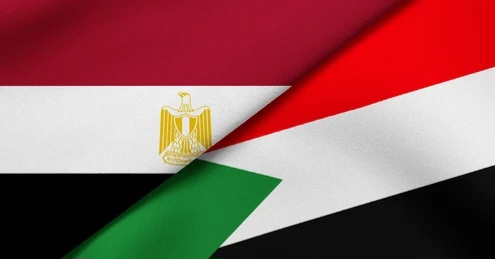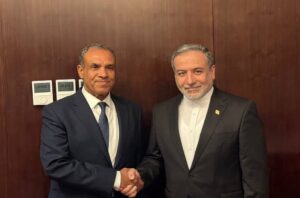Egypt hosts press conference on Sudanese political dialogue

Cairo, The Gulf Observer: Egypt hosted Tuesday a press conference on the Sudanese political dialogue and Sudanese affairs at Al-Masa Hotel in the New administrative capital.
A Sudanese constitution professor highlighted that the transitional authority had not formed a parliament as indicated in the transitional document. He asserted that Sudan needs a founding power that stems from people’s voting.
Further, a Sudanese politician suggested that the transitional period consisted of “a constitutional void and an executive void.” Nevertheless, he speculates that, in the coming period, there will be “a productive and effective momentum.”
With regard to brokering talks among different Sudanese groups, Member of Sudanese Democratic Group Alaa Asfouri accused the United Nations Integrated Transition Assistance Mission on Sudan (UNITAMS) of abandoning neutrality and being biased to a specific political group.
Asfouri added that an entity in Sudan called ‘The Quartet’ had also been biased in brokering talks among Sudanese political groups. In that context, he urged neighboring states to help with facilitating talks among Sudanese political groups while respecting Sudan’s sovereignty.
As for the deterioration of living conditions and lack of stability, the former Sudanese transport minister shed light on the marginalization of East Sudan as the province is experiencing ethnic conflicts coupled with absence of developmental efforts.
In January, the Egyptian Ministry of Foreign Affairs released a statement stressing Egypt’s confidence in the Sudanese parties’ capability to reach a final and comprehensive political agreement that ends the transitional period and achieves the ambitions of people.
Egypt called on all regional and international parties to resume its developmental and economic assistance to Sudan in order to help the neighboring state deal with pertinent challenges.
The ministry underscored that should be done in a way would positively influence the Sudanese citizens’ living standard and contribute to achieving a comprehensive political consensus in Sudan.
Head of Sudan’s Sovereign Council Abdel Fattah Al-Burhan and his deputy Mohamed Hamdan Daglo Hemetti had pledged to hand over power to a civilian transitional government that would be formed by the end of the current political process.
The military leaders partook in the launch of the second and final phase of the political process facilitated by the tripartite mechanism of the United Nations, African Union, and the Intergovernmental Authority on Development (IGAD).


